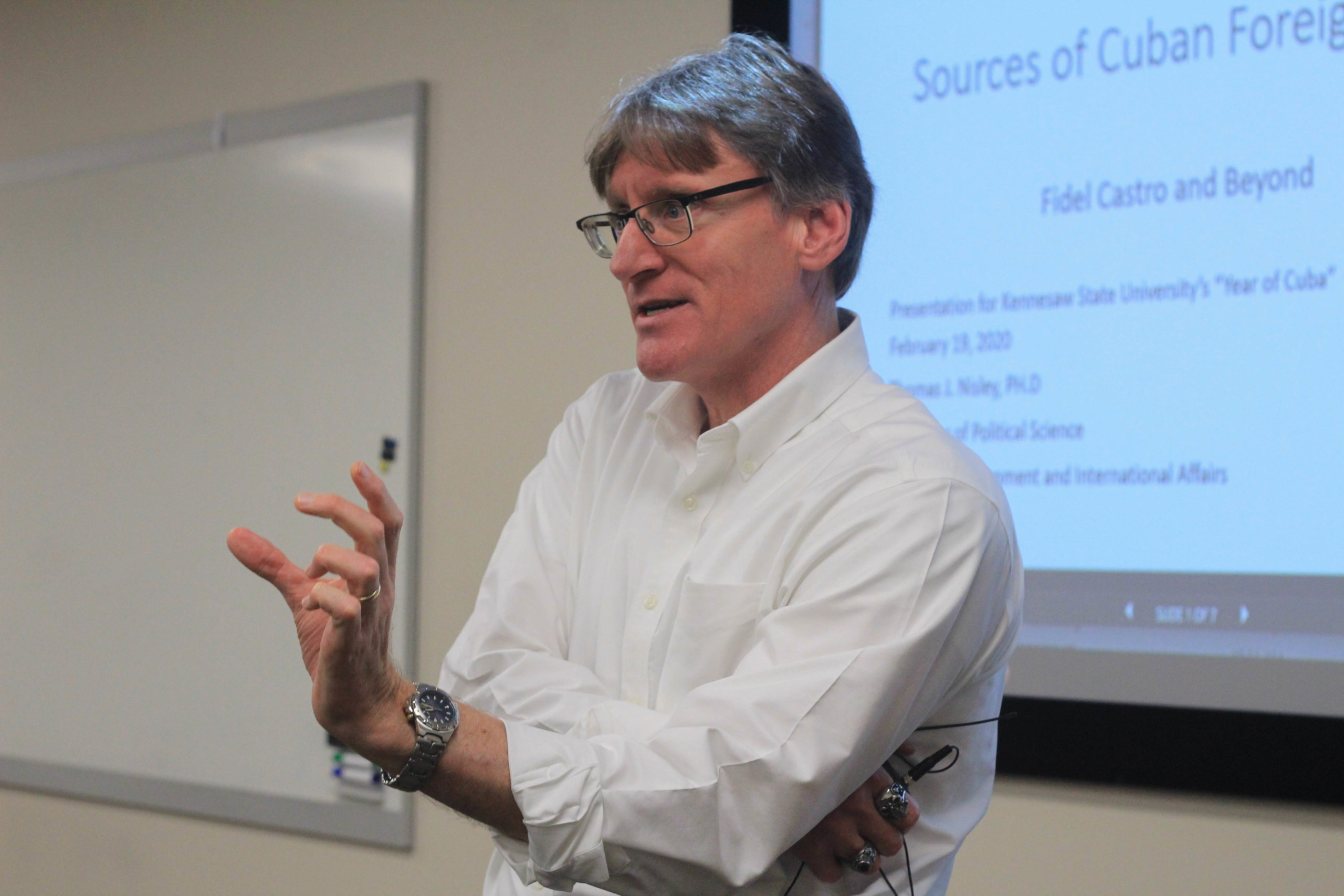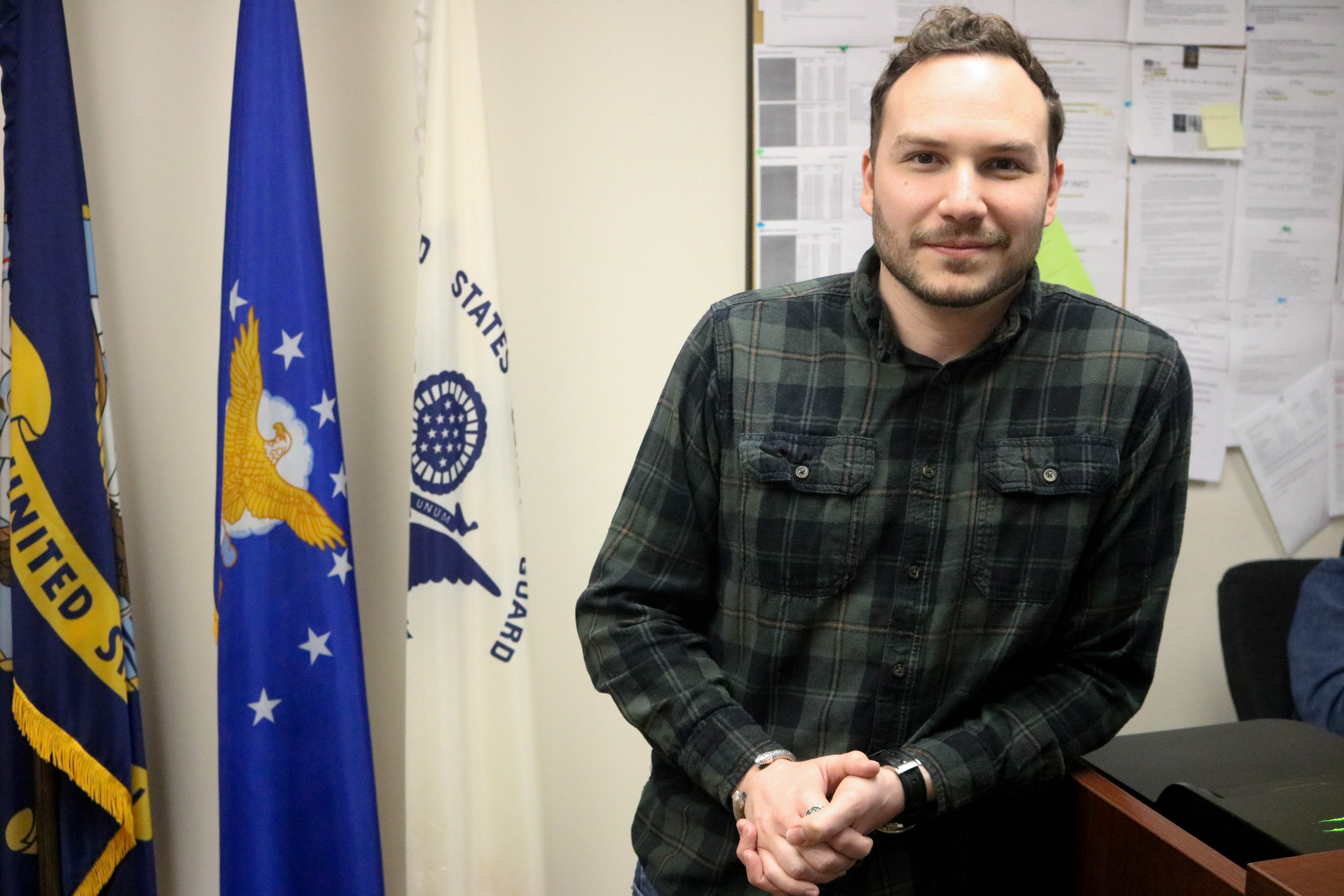Kennesaw State Professor of political science Thomas Nilsey explained the impact of Cuba’s overseas relations and how the country maintains relationships in his Sources of Cuban Foreign Policy lecture on Wednesday, Feb. 19.
As part of KSU’s “Year of Cuba” initiative, Nilsey’s presentation opened with an explanation of the historical, geographical and cultural factors that went into Cuba’s foreign policy.
Nilsey said there are the individual, state and global sources for conflict and foreign policy factors. Because Cuba does not have geographical neighbors, its foreign policy stems from global relations.
While most Latin American countries gained independence from colonial powers in the early 19th century, Cuba remained a Spanish possession for decades afterward, Nilsey said. After three wars, beginning in 1868, Cuba finally gained independence as a result of the Spanish-American War in 1898.
After the Cuban Revolution in 1959, Nisley said Cuba became a semi-sovereign nation that aligned its policies and actions to satisfy a larger nation that influenced it. This was, however, not what all Cubans wanted.
Cuba aligned with Soviet Union to avoid U.S. domination, but Nilsey said Cuba also sympathized with any nation fighting for independence.
“It’s incredibly fascinating to think about such a little country acting as though it were a superpower, doing things across the planet,” Nilsey said. “That is not what little countries do. One thing the Cuban government did was support revolutions in Latin America.”
Cuba sent troops to aid Algeria and the Liberation of Angola. Nilsey said this was of Cuba’s own motivation and had nothing to do with Russian interests.
“I actually didn’t know that they were that intensely involved in Africa,” mechanical engineering junior Taylor Maddox said. “I thought that was really interesting.”
Some of Cuba’s actions were not necessarily liked or supported by the USSR, as Cuba’s goal was to stand alone, Nilsey said.
Once the USSR collapsed in 1991, Nilsey said Cuba’s economy followed suit. Cuba then focused its foreign policy on soft power, which is influence through non-war actions. Cuba’s soft power comes from the Cuban Peace Corps medical aid.
Founded in the 1960s, Nilsey said the CPC has sent 325,000 health professionals to 158 different countries to spread Cuba’s influence. In 2005, The Henry Reeve International Medical Brigade was created in response to Hurricane Katrina and has since aided an earthquake in Pakistan and the Ebola crisis in Africa.
“What is so fascination [sic] about Cuban foreign policy is that it has had one since the Cuban Revolution and one that rivals a country [10] times its size,” Nilsey said. “What I hope people took away from the lecture is that Cuban foreign policy … was self-driven and not just an extension of the foreign policy of the Soviet Union.”
For more information, visit the “Year Of” website.



